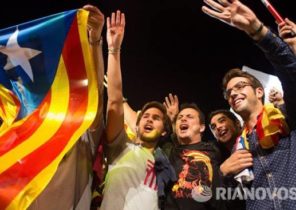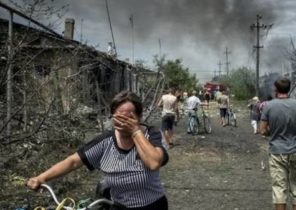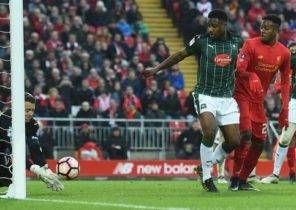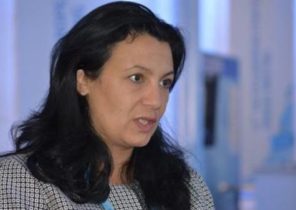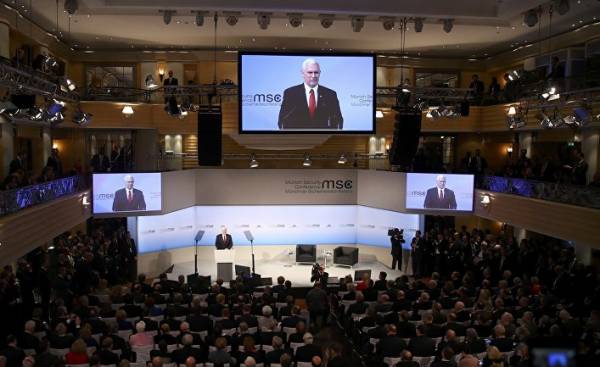
Munich — last week before opening the Munich conference on security — the world’s most prestigious non-governmental forum of this kind, its head Wolfgang Ischinger warned that the current meeting will be special. Just like this year. “2017 will be the year of the world the highest level of uncertainty,” he said. Among the grounds for this assertion, according to Ischinger, the uncertainty of US policy in the trump, the fate of NATO, its relations to Russia, changes in Europe after the elections this year…
Munich-2017 can be called a successful conference, because for three days it was possible to remove (or at least simplify) some of these issues. But the majority remained. Important problems for Ukraine came in first and second group. “European Pravda” revealed the themes and insights that are often sounded at the annual conference in the Bavarian capital.
The two shores of the Atlantic
Undoubted top theme of the Munich meeting were changes in the United States under the new government. Especially in relations between States and NATO. And this is natural. For Europe, maintaining effective Alliance — a vital issue. It is on the Alliance, in particular, the US involvement in it, is based the security of most member States of the EU. In a decade of relative peace, European countries began to perceive the American military support as a given; in the case of her disappearance, the scale of the problems would be really significant.
But if this extreme scenario few thought realistic, then the threat of gradual failure of the us joint European projects and on the protection of partners in Eastern Europe was quite substantial. She was among the pre-election “promises” of Donald trump. However, after the election rhetoric of the new leadership of the USA has changed.
And last week the point was put: States will remain the guarantor of European security. First, the head of the Pentagon, and with him the new Vice-President reassured European partners. “President trump was asked to speak here and to convey an important message. The United States strongly supports NATO and will be relentless in fulfilling its obligations in the framework of the transatlantic Alliance…
Peace comes through strength. President trump believes that we must be militarily strong, able to resist anyone who chooses to threaten our freedom and way of life,” he said in Munich, having broken the applause of the audience. Only the Munich statement of the Pence, and the speeches of other representatives of the United States, contained another fragment, which for Washington is no less important.
3% of GDP on security. The new goal of the West?
Updated support for the Alliance with the United States could not do without compensators. As expected in Europe, Washington has put forward the requirement to increase defence spending partners.
We are talking about the norm, which is formally valid in NATO, but not actually executed: the budget for defence should be at least 2% of GDP. In the 2016 budget, only five countries have reached this rule, and only the United States with a defense budget amounting to 3.6% of GDP significantly exceeds it. A number of European countries (not the poorest) still maintain a very low cost, with the lowest level in Luxembourg — 0.44%, and in Iceland, where the cost is close to zero.
Important detail: three years ago, after the Russian aggression, when it was agreed to increase defense spending, all member countries pledged to achieve the 2 percent target in 2024. That is ahead of a lot of time. But the US is trying to change the rules of the game now.
If simplified, the position of States in Munich was: on 2024-m agreed to us. And we expect growth of budgets now. “To protect Europe needs your contribution as well as in our, — persistently explained Pence. — It’s time to do more. The world has become too dangerous.”
This position is not a whim of only one trump (who is constantly referred to Pens). In unison with him and other politicians from the United States. The issue of defense spending has become, without a doubt, the main Munich-2017. And here about the unity of Europe with America, however. “We are increasing expenditures, but gradually. Faster growth we will not be able to digest,” explained Angela Merkel (the level of German expenses to 1.19%, below average).
In defense of the European countries were also made by the NATO Secretary General. “The year 2015 was the first year when they stopped the contractions. And in 2016, the expenditures increased by $ 10 billion. That is, it’s only been two years, and we have made two important steps,” he urged. But the position of the Europeans has a serious drawback: the States that are now investing in defense is considerably less than normal, still not announced clear plans of when and how they will take to the targets.
So, in the United States believe that cost increases may remain just a promise. And so it’s safe to say that Washington uses all the leverage to his demand fulfilled. Besides, the US has a powerful ally: the lobbying goal of 2% in Munich joined Britain.
“We don’t understand why there is no growth plan. Savings? But we also went through a period of austerity. We are reducing budget spending in 2010 and forced in the future to cut them. But at the same time increasing the cost of security at the expense of others,” — said the British Minister of defense Michael Fallon. The British had reached the threshold of 2%. “You don’t say that until 2024 far. It is necessary to adopt the goal at the legislative level, and annually increase defense spending to a higher level of inflation,” he said.
But in Munich emerged and fundamentally new idea. Its nominal author was Wolfgang Ischinger. But there is every reason to believe that in reality we are talking about the official position of Berlin. “We talked a lot about the 2% on defense. I suggest another approach: to adopt the goal of 3%, but to include in it not only the defense but also for humanitarian support, the costs of diplomacy, development assistance (non-refundable assistance to the poorest countries. — approx. ed.)…”, — said Ischinger, summing up the conference, and added that this is not a casual suggestion.
“The goal of 3%” — the source of a number of rich European countries, including Germany, Benelux, Italy and Spain. In the case that the US will agree to that approach, Berlin or Luxembourg can stop the growth of defence budgets at the level below 2% and get the rest at the expense of humanitarian projects. Or, say, projects to counter Russian propaganda and cyber threats. So expect that this discussion will later be released on the official level.
Institute the cold war
The main source of instability on the European continent is Russia, and this is the reality for many years to come. If in 2014 this thesis meetings in the West had to prove that he is now perceived as a commonly known fact. Largely that is why we have to increase defence spending. The change in the European position cannot fail to irritate the Kremlin.
And Russian foreign Minister Sergei Lavrov in Munich, said bluntly: we are talking about a new stage of the cold war. “They say that wars begin in the minds of people, where they, logically, should end. However, with the cold war this has not happened yet. In particular, judging by some statements of politicians in Europe and in the United States,” — said Lavrov. “NATO is still the institution of the cold war,” he added.
As you know, the beginning of a new cold war between Russia and the West in the Munich meeting of 2016, announced Prime Minister Dmitry Medvedev. Subsequently, the representatives of the EU and NATO have repeatedly stated that I do not agree with estimates of the head of the Russian government. But Russia, which over the last 10 years increased its military budget consistently promote this idea.
Hostilities go on the Internet
Munich-2017 confirmed: in this confrontation with the West, Russia is left alone. In her defense has not publicly made by no one, not even the foreign Ministers of Iran and China, who addressed the third day of the forum. Iran has other pressing problems in relations with the new American administration and he is not ready to take on and even the Russian part. But for Beijing, the weakening of Moscow is the best possible scenario. China knows how to wait.
Whether to keep the current level of isolation of the Russian Federation largely depends on the fate of Western sanctions, but there is reason for cautious optimism. In Munich there were even calls for the extension of the sanctions — particularly from the Republican Senator Lindsey Graham. But appeals to mitigate them were not. Even Russian top speaker Sergei Lavrov.
But we should guard against excessive optimism. If the military threat posed by Russia, has finally become obvious, in the field of hybrid threats. Yes, the key figures of the statements were made. “We should be the first on the Internet (cybersecurity), as in the military sphere”, — said, in particular, Mike Pence. But European politicians were seriously concerned about Russia’s attempts to influence the outcome of future elections in the EU.
But what exactly is the Russian threat? “European Pravda” has witnessed a panel discussion which took place in the framework of the Munich conference. Discussion with the participation of experts and editors of leading media was very revealing and demonstrated: prior awareness of the nature of cyber threats and promote them far away. “I don’t understand what is the danger of Internet trolls, it is immediately obvious, whether the person who wrote the comment,” this opinion was quite common.
Ukraine in the fields
As already wrote “European Pravda”, Ukraine was not included in the list of the top is Munich, but it’s actually not a problem. Just the West’s attention has shifted to new, hitherto unfamiliar threats emanating from Moscow. Even the controversial decision of Moscow on the recognition of passports ORDO not returned to Ukraine in the agenda of the Putin’s decree did not become a topic of discussion
“The issue of Russia dominated the conference. He dominated last year, but last year he was concerned with Russia’s actions in Ukraine, but not now. Now we are talking about Russia’s attempts to influence the election,” — said, opening the discussion with the participation of American senators, American expert Jane Harman.
The problem instead lies in the fact that Kiev did not use the full power potential of the Munich conference. Instead of giving partners greater understanding of hybrid threats, awareness of the dangers of propaganda and offer experience in dealing with hybrid threats — in exchange for support from the West, Poroshenko chose simple but not the most effective way — the story of the Russian influence in the Donbass. That is about what the West knew and without it.
But — as mentioned in a previous article, the EP — it is not about losing Kiev, but only about missed opportunities. But “the bottom line” Kiev has reason to be happy. Mike Pence has publicly supported the pressure on Russia for its aggression against Ukraine. Let one phrase and without details, but this phrase has become the only mention of Russia in the speech of the Vice-President of the United States. Angela Merkel has devoted to the Ukraine a few paragraphs of his speech: he stated the need of conservation “Minsk”, but acknowledged that the beginning of political action is now impossible.
But the senators generally called for tougher sanctions against Russia. However, whether this will happen in practice depends on the policies of the new administration trump. It’s important not to have excess euphoria from statements of the Vice-President of the United States.
This dangerous world
Evident that both the representative of the new American administration — Vice-President of Pensions and the Minister of defence Mattis — during participation in the Munich security conference refused to answer questions from the audience, where they listened to presidents, Ministers and other participants.
For comparison, even the Iranian foreign Minister agreed to hold a full session of questions and answers. Moreover, even the Minister of foreign Affairs of China (perhaps the most cautious among the States represented at the Munich conference) not only delivered a speech but also answered the questions of the moderator. So you can ask questions to other high-ranking officials, including Angela Merkel. But not the Pens or Mattis.
The most likely explanation is the foreign policy strategy of Washington is still not certain. It’s true it’s still unclear who will have the greatest impact on its formation. By the way, observers have already noticed that Pens, mentioning about the responsibility of the Russian Federation for aggression against Ukraine avoided mentioning the word “Crimea”. Although this is, of course, could be coincidence.
Finally, don’t forget that Ukrainian issues — not only on the foreign policy map of the United States. Finally, the Munich meeting has further demonstrated how complex the company is now experiencing the world. None of the participants could not give a recipe for how to resolve the Syrian conflict; Israeli re-issue a leader; the opposition in the Arab world is increasing; in Turkey, do occur a difficult process.
But despite this, Ukraine has a chance and opportunity still keep the attention of global leaders. And provided a creative approach Kiev — Ukraine is able to become not only the object of attention, but also full-fledged regional player.

